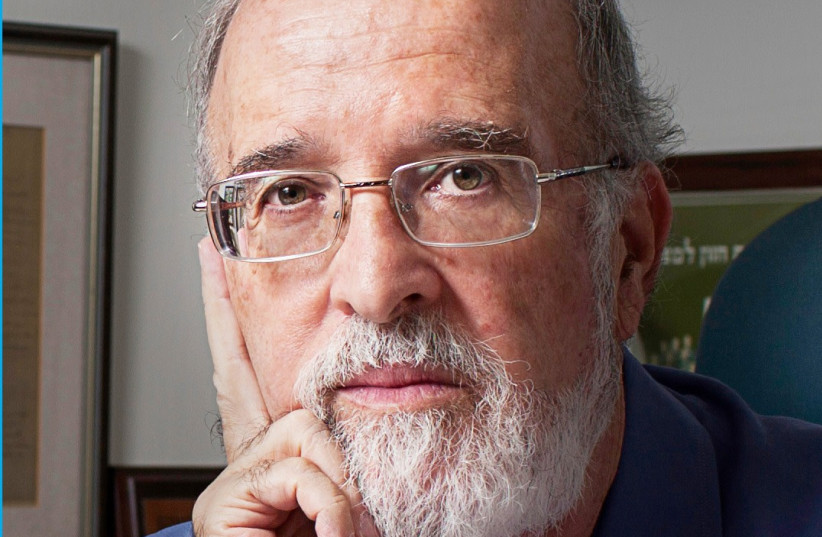The “start-up nation” is known for its technological innovation and its ability to push the envelope to new, cutting-edge technology; it’s involvement in the development of artificial intelligence is no different.
As the AI Week 2022 conference plays out during the second week of February, Israel and the AI community gather to deliberate upon the future of one of the most influential technologies in the current era.
The conference, hosted by the Blavatnik Interdisciplinary Cyber Research Center (ICRC) at Tel Aviv University, is one of several conferences around the world covering a wide array of topics related to the advancement and varied applications for AI technology in the modern tech landscape. It features dozens of keynotes discussing Israeli efforts in the field, from deep learning to cybersecurity; as well as presentations from collaborators in other nations, from Spain to Singapore.
“AI is the dominant technology of the next five, ten years; Israel is capable of being one of the global hubs for AI technology, as we are for cyber technology,” said Professor Isaac Ben-Israel, director of the ICRC, chairman of AI Week Online, and co-founder of the annual event.
Ben-Israel is a retired Major-General in the IDF, where he served in several top defense technology units until his retirement in 2002. In 1998, he was appointed director of defense R&D directorate in the Israel Defense Ministry.

In 1999, he wrote a letter to the prime minister urging him to invest in Israel’s development of cybersecurity. Years later, he was asked by Benjamin Netanyahu to create a cybersecurity plan to prepare Israel for the coming years. The plan that Ben-Israel submitted in 2011, known as the National Cyber Initiative, laid the foundation for Israel’s cyber revolution during the last decade.
Following that plan’s success, Ben-Israel was approached to co-write a new plan, this time focusing on artificial intelligence, which he and co-author Professor Eviatar Matania called the National Initiative For Secured Intelligent Systems. “The more we become dependent on AI – the more successful AI is globally – the more vulnerable we will be to cyber attacks,” said Ben-Israel. “That’s why we named our AI plan ‘the National Initiative for Secure Intelligence Systems.’”
The plan suggests a proper course of action to be taken by the Israeli government in order to stay vigilant and relevant in the oncoming AI age. At present, it’s awaiting budgetary approval.
Though it was finished in 2019, changes in the government led to a freeze on the government’s ability to allocate a budget toward the program. According to Ben-Israel, however, Prime Minister Naftali Bennett is interested in advancing the plan; he expects it to be approved soon.
Despite its current “in limbo” status, the plan has activated organizations that don’t need government approval, explained Ben-Israel. “One example is the IDF. They’ve started developing AI for their own needs. The IDF is running ahead very quickly; not waiting for the government to tell them what to do, because they realize the potential.”
Last November, Israel joined the Global Partnership on Artificial Intelligence (GPAI), an initiative created in 2019 aiming to support research and applied activities in the AI space, in order to bridge the gap between theory and practice.
In 2020 Israel joined the ad hoc Committee on Artificial Intelligence (CAHAI), a global AI initiative committed to investigating the legal framework for the development and application of AI technology. By joining these organizations, Israel has proven its desire to be a significant player in the field.
“The goal is very simple: we would like to be one of the top five countries in the world in AI,” said Ben-Israel. According to the Artificial Intelligence Index Report 2021 published by Stanford University, Israel ranks fourth in the world in terms of private investment capital raised in AI technology as of 2020, after the UK, China, and, in first place, the United States. Said Ben-Israel: “The rest of the world is behind us.”
According to Professor Nadav Cohen, Israel has long held its position as a main contributor in the AI arena. “Scientists in Israel have had an essential role in the development of AI,” he said. “These [global] initiatives can provide a lot of support, infrastructure and funding for collaboration, but at the core, [Israeli scientists] have been there for a while.”
Cohen is the chief scientist at AI development company Imubit, which is developing what it believes to be the next step in AI advancement: true learning. “AI today is mostly around describing objects; but having true intelligence means operating in a dynamic environment, utilizing strategies, and making decisions.”
That level of depth could be the future of Artificial Intelligence. “The interaction with AI will not necessarily be as passive as it is today: You ask a question, it gives an answer. What’s going to happen in the future is that systems around us will be much more active. You could have robots doing chores, construction, or medical services,” said Cohen. “It’ll start getting closer and closer to having a personal assistant.”
While the future is yet to develop, the present situation is clear: Israel’s participation in the advancement of Artificial Intelligence benefits the entire AI industry, and while there may be small-scale opportunities in competing with each other, all Israeli AI developers are racing side-by-side toward a tech landscape that is critically impacted by their work. Said Cohen: “It’s no longer individual scientists or groups. It’s a national effort now.”
